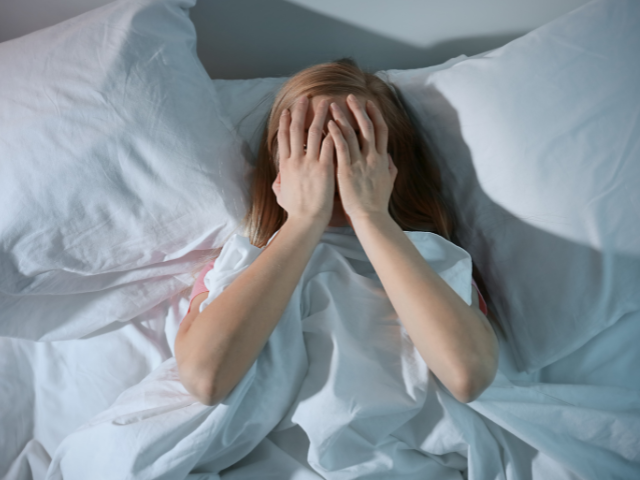Insomnia is a common sleep disorder affecting many people around the world. Whether caused by stress, anxiety, chronic pain or other factors, the inability to fall asleep or stay asleep has a significant impact on overall health and well-being.

While many traditional solutions exist, such as sleeping pills and behavioural treatments, more and more people are turning to natural options to improve the quality of their sleep. Among these, cannabidiol (CBD) is emerging as a promising alternative.
Why is CBD seen as effective against insomnia? How does it interact with the body and what are its effects?
What is CBD and how does it work?
Cannabidiol, better known as CBD, is one of the many active compounds (cannabinoids) present in the cannabis plant. Unlike THC (tetrahydrocannabinol), CBD does not produce mind-altering or euphoric effects.
CBD works by interacting with the body's endocannabinoid system (ECS), a network of receptors in the brain, nervous system and other parts of the body. The ECS plays a key role in regulating a number of physiological processes, including sleep, mood, appetite and pain. By influencing endocannabinoid receptors, CBD can help rebalance these processes, promoting better sleep.
The causes of insomnia and the role of CBD
Insomnia can have a variety of causes, including stress, anxiety, chronic pain, hormonal imbalances and poor sleep habits.
CBD acts on several of these factors to improve sleep quality indirectly.
Reduced anxiety and stress
Stress and anxiety are among the most common causes of insomnia. These two factors can make it difficult to relax and fall asleep.
CBD is valued for its anxiolytic effects (anxiety-reducing). It interacts with serotonin receptors in the brain, a neurotransmitter that plays a key role in regulating mood and anxiety.
A 2019 study found that CBD could improve sleep in people suffering from anxiety. Out of 72 participants, 79% reported a reduction in anxiety after a month of CBD use, and 66% saw an improvement in their sleep. By reducing anxiety, CBD helps to calm the mind, making it easier to fall asleep.
Pain relief
Chronic pain, whether due to inflammatory diseases, injuries or other conditions, can also contribute to insomnia. CBD is known for its anti-inflammatory and analgesic properties, making it a potential treatment for people suffering from chronic pain that interferes with sleep.
By reducing pain, CBD allows people to feel more comfortable, fall asleep more easily and avoid waking up at night, promoting a more restful sleep.
Regulation of sleep-wake cycles
CBD could also play a direct role in regulating sleep-wake cycles, by promoting the production of certain neurotransmitters linked to falling asleep and staying asleep.
The endocannabinoid system regulates the body's internal balance (homeostasis), including circadian rhythms, which control the sleep-wake cycle.
By interacting with endocannabinoid receptors, CBD helps to stabilise these rhythms, encouraging a more regular sleep cycle. Unlike certain sleeping pills that induce artificial sleep, CBD seems to encourage a more natural, restorative sleep.
CBD and the different phases of sleep
Sleep is made up of several cycles, each with specific functions in restoring energy, cellular repair and cognitive support. The main phases are light sleep, deep sleep and REM sleep.
Effects on deep sleep
Deep sleep is essential for muscle tissue repair, memory consolidation and cell regeneration. Disturbances in deep sleep can lead to a persistent feeling of tiredness and inadequate recovery after a night's sleep.
CBD influences the activities of the endocannabinoid system by modulating levels of serotonin and melatonin, which are involved in regulating sleep.
CBD could extend the duration of deep sleep in people suffering from sleep disorders. This means that even if the total amount of sleep is not increased, CBD could improve sleep quality by increasing the proportion of deep sleep.
Effects on REM sleep
REM sleep is the phase of sleep during which the majority of dreams occur. Sleep disorders, such as REM sleep behaviour disorder (RBD), are characterised by body movements during sleep, which can lead to frequent awakenings and disrupt sleep quality.
REM is particularly important for memory consolidation, emotional regulation, creativity and problem solving. Disruption of this phase of sleep can therefore have negative effects on these.
Specific research into the impact of CBD on REM sleep is still in development. However, some studies and observations provide clues as to how CBD may influence this phase of sleep. Deeper sleep onset and uninterrupted sleep with CBD promotes REM sleep.
A 2020 study showed that CBD can reduce the effects of REM sleep behaviour disorder, promoting continuous sleep without waking.
CBD dosage for insomnia
The optimal dosage of CBD for the treatment of insomnia can vary considerably from person to person, depending on several factors, such as weight, metabolism and severity of symptoms. It is recommended to start with a low dose (around 10-20 mg) and gradually increase until the desired effect is achieved.
Some studies suggest that higher doses of CBD are more effective in prolonging sleep and improving its quality, particularly in people suffering from sleep disorders. However, it is essential to consult a healthcare professional before starting CBD treatment, especially if you are taking other medications.
The different forms of CBD for sleep
There are several ways to consume CBD, each with its own benefits depending on your sleep needs.
CBD oil
CBD oil is one of the most popular and versatile methods. It can be taken sublingually (under the tongue) for rapid absorption, or added to drinks or food. Combined with melatonin, it's a good option for people looking to fine-tune their dosage, for consumption just before bedtime.
Capsules and edibles
CBD capsules and gummies are a practical alternative for those who prefer a discreet, pre-measured method of consumption. However, as they need to be digested before entering the bloodstream, their effect can take longer to manifest, often between 1 and 2 hours.
Vaporising CBD
Vaporisation is the fastest method of administration, allowing you to feel the effects in just a few minutes. However, it is less long-lasting, and the effects may fade more quickly than those of oils or capsules.
CBD, a promising aid for insomnia
CBD is gaining recognition as a promising natural option for people suffering from insomnia or sleep disorders.
Thanks to its anxiolytic, analgesic and sleep-wake cycle regulating properties, it acts on many of the underlying causes of insomnia. However, each individual reacts differently to CBD, and it is essential to experiment with the dosage and method of administration to find the most suitable solution.
